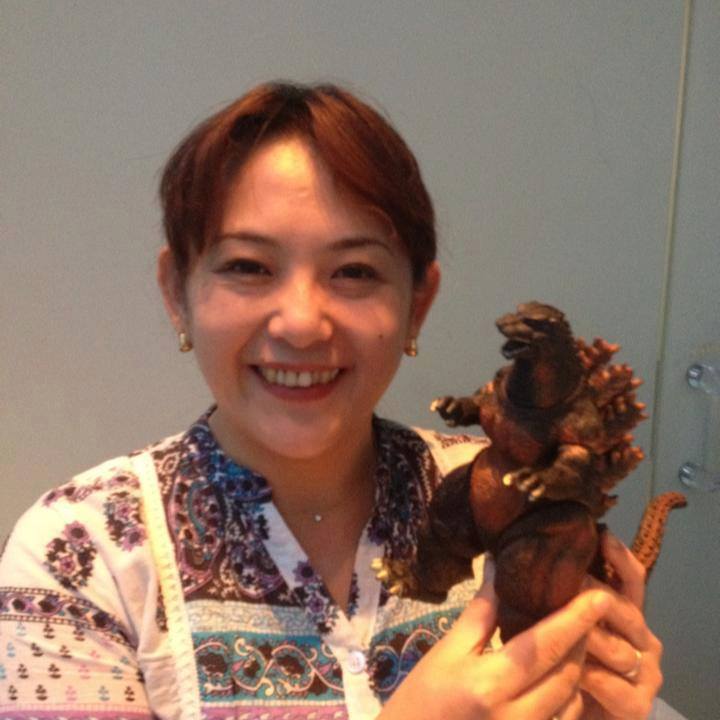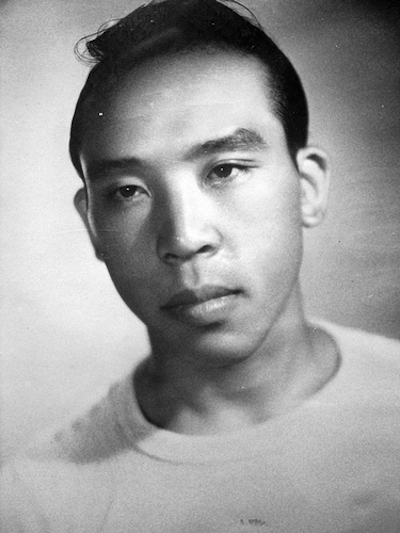
Toho Kingdom hat jetzt ein wirklich
interessantes und aufschlussreiches Interview mit Steve Ryfle (Author vieler ausgesprochen guter englischsprachiger Literatur zum Thema Tokusatsu, Godzilla und japanischer Film) geführt, im Rahmen der Veröffentlichung seines
neuesten Buches, welches er gemeinsam mit Ed Godziszewski, einem weiteren populären Fachauthor zu dem Thema, verfasst hat - darin erwähnt er im Vorfeld schon einmal einige interessante Details zu Godzilla-Schöpfer Ishiro Honda, besonders interessant ist hierbei die Stelle über dessen Kriegserfahrungen ... u.a. wurde Honda fälschlich beschuldigt, bei einem Militärputsch involviert gewesen zu sein und deshalb als Strafe nach China geschickt (hier ein Zitat des betreffenden Abschnittes):
There was nothing controversial about Honda's military service; he was drafted (several times) and served his tours of duty by biding his time, making every effort to survive, and waiting to return home to his work as an assistant director at Toho Studios, where he was pursuing his dream of a career in the film industry. Although he did not openly protest or resist the draft—to do so would have meant criminal prosecution, at the least—he was nevertheless unenthusiastic about the war, and horrified by some of the brutal and cruel things he witnessed his superior officers doing. So much of what happened during the period of roughly 1935 to 1945, when he was sent back and forth to the war front, would shape the rest of Honda's life. For instance, in February 1936, when Honda was stationed in Tokyo, some members of his regiment took part in an attempted coup d'etat. The actual perpetrators were caught and convicted for their crimes, but the entire regiment was also tarnished with a sort of guilt-by-association and they were subsequently shipped out to China. Honda had no involvement in the rebellion, but he paid for it anyway: his term of service was longer than customary, and he was repeatedly conscripted, all of which indicated to him that he was being punished for his tangential connection to the criminals.
In a sense, Honda was among the lucky ones; despite all his time spent at war, he returned home alive, but nevertheless these were lost years, setting back his trajectory at Toho and separating him from his family for so long that his wife wondered if he would ever return. There were other key experiences too, one of the most important being a near-death incident during a battlefield skirmish; there were friendships he developed with Chinese villagers and the nationalists who would capture and hold him as a POW at the end of the war; and of course there is the famous story of Honda's passing through the ruins of Hiroshima en route to Tokyo while returning home after the war's end. The only thing that could be considered controversial, and I'm not sure that's the correct term, is the fact that Honda was for a time assigned to work at a comfort station, which is what they called the brothels set up by the military to provide prostitutes to the soldiers and officers. The "comfort women" were sex slaves, kidnapped or coerced or tricked into prostitution, many or most of them taken from occupied Korea. This remains a sensitive topic between Japan and South Korea; the two countries are still trying work out an agreement to put the matter to rest, including a formal apology from Japan and a payment of reparations to victims' groups, but it's a horrible part of Japan's war legacy and people are still uncomfortable talking about it. Honda later wrote an essay about his experience working there in an essay that was published in a movie magazine around the time that Seijun Suzuki's Story of a Prostitute (1965), a brutal film about life at a comfort station, came out.
[...]
I suppose it could be surprising to learn that Honda, who is generally known to have been a very kind person and whose films have been described as "humanistic," worked in a brothel where women were forced into sexual slavery. But it's not as if he chose this assignment, and again, to resist or refuse to serve would have been a criminal offense. If you've read Iris Chang's The Rape of Nanking or any number of other books about Japan's conquest of China, you know that the plight of the comfort women is just one aspect of this horrifying story. Yes, we have read Honda's writing about his experience at the comfort station, and we quote from it in the book. In that essay, he expresses empathy for the women and their tragic stories; some turned to drug use, one fell in love with an officer who abandoned her, and so on. He concludes by saying the women's lives were destroyed by the war. I suppose he could be faulted for not being more direct; after all, the war didn't spontaneously happen; Japan's conquest of China was methodical and sometimes brutal. However I really do believe Honda deserves credit for writing about this very sensitive subject in a mainstream magazine—and he did so more than 60 years ago, when the topic was even more uncomfortable and unspeakable than it is today. As I mentioned earlier, it's still a controversial subject today—just this week, the mayor of Osaka threatened to sever sister-city ties with San Francisco in protest of a statue honoring the comfort women being erected there; he said the statue amounts to "Japan-bashing." The book deals with this subject directly and fairly; there's no dancing around the subject.
Wer also interessiert ist auch mal mehr über den Mann hinter der Kamera zu erfahren (und optimalerweise auch dem Englischen soweit mächtig ist), wird hier keinesfalls enttäuscht werden!


Und ich werde mir das Buch auf jeden Fall noch zulegen






